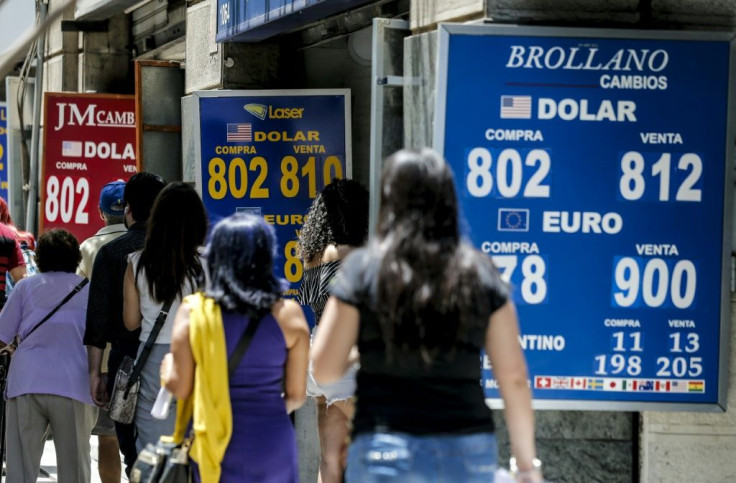Chile Unveils $5.5 Bn Stimulus Plan As Economy Shrinks

Chile launched a massive $5.5 billion stimulus package after data showed its economy contracted 3.4 percent in October -- the largest year-on-year drop in a decade -- as widespread social unrest continues.
The package unveiled by Finance Minister Ignacio Briones on Monday includes boosting 2020 public spending by $3.03 billion, to support small, medium and large businesses.
Another $525 million are earmarked for other initiatives like the renovation of the metro system in Santiago, which has sustained serious damage since protests erupted on October 18.
"Estimates show that this agenda will generate 100,000 new jobs next year," Briones said.
But the measures will mean a real increase in public spending next year of 9.8 percent as compared to 2019, pushing the fiscal deficit up to 4.4 percent of gross domestic product.
"Like any Chilean household that faces unforeseen trouble, we will turn to our savings and our borrowing capacity, while remaining aware that both have limits that cannot be exceeded," Briones said.
The government announced the stimulus measures after the central bank reported the worrisome GDP figures for October.
The 3.4 percent drop was far greater than the one percent decrease anticipated in official estimates, and represented the economy's worst performance since 2009 at the height of the global economic crisis.
"Economic activity during the month was affected by the drop in services, commerce and manufacturing," the central bank said.
Mining activity -- Chile accounts for nearly a third of the world's copper production -- grew by two percent, but non-mining sectors contracted by four percent, the bank said.
The government's plan "loses meaning if we do not manage to isolate the vandals, looters, narcos and all those who threaten our democracy," said interior minister Gonzalo Blumel.
Protests broke out across the country Monday night, the 46th consecutive day of demonstrations. In Santiago, protesters gathered in the Plaza Italia, a main hub for the city's rallies, and dozens of young people broke into different metro stations.
A 12-year-old boy was arrested during a demonstration in the southern city of Concepcion for stealing glasses from an optician, police told local media. He was placed in the custody of an adult since he was too young to be charged, they said.
Protests initially erupted in mid-October over metro fare hikes but quickly escalated into the most severe outbreak of social unrest since the end of the dictatorship of Augusto Pinochet in 1990.
Furious Chileans have taken to the streets to protest social and economic inequality. Businesses have remained closed during the period of unrest, public transport came to a halt, and many people worked shorter days.
At least 23 people have been killed, including five at the hands of security forces, and more than 2,000 were wounded.
In the third quarter, Chile's gross domestic product was up 3.3 percent. But the new GDP figures announced on Monday prompted the government to revise official estimates of about two percent growth for the year downward, to 1.4 percent.
In 2020, they estimate GDP will increase 1.0-1.5 percent.
With the markets unsettled, the central bank on Thursday announced it was intervening in the foreign exchange markets to support the peso, which last week fell to a historic low of 828.36 to the dollar.
On Monday, the peso ended trade at 805.24 to the dollar.
© Copyright AFP 2024. All rights reserved.





















